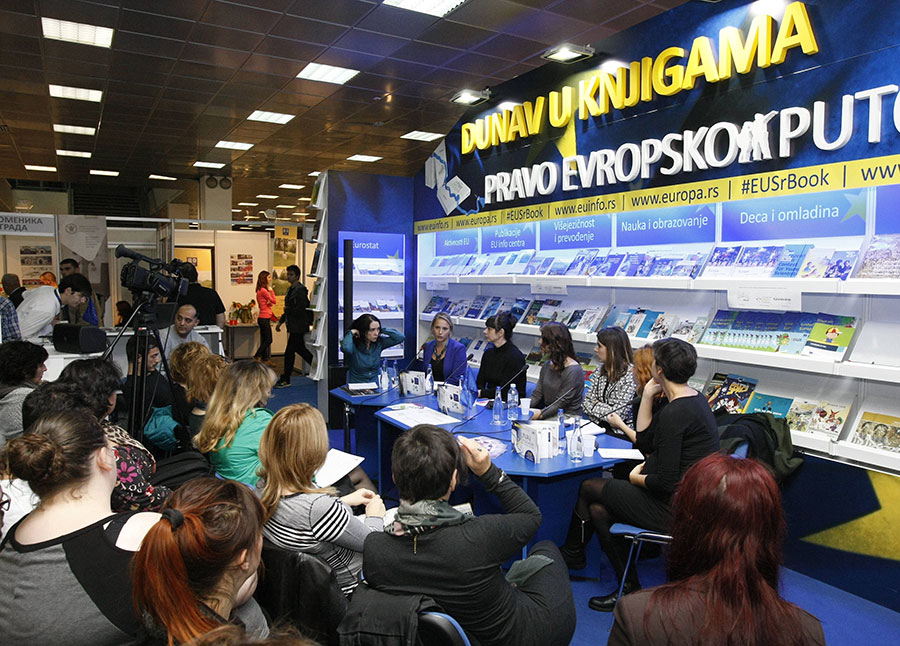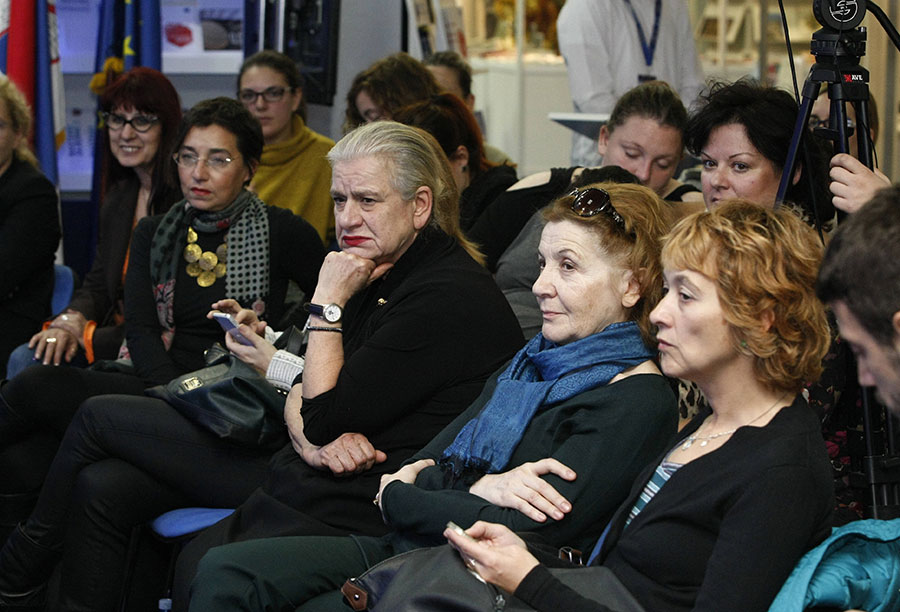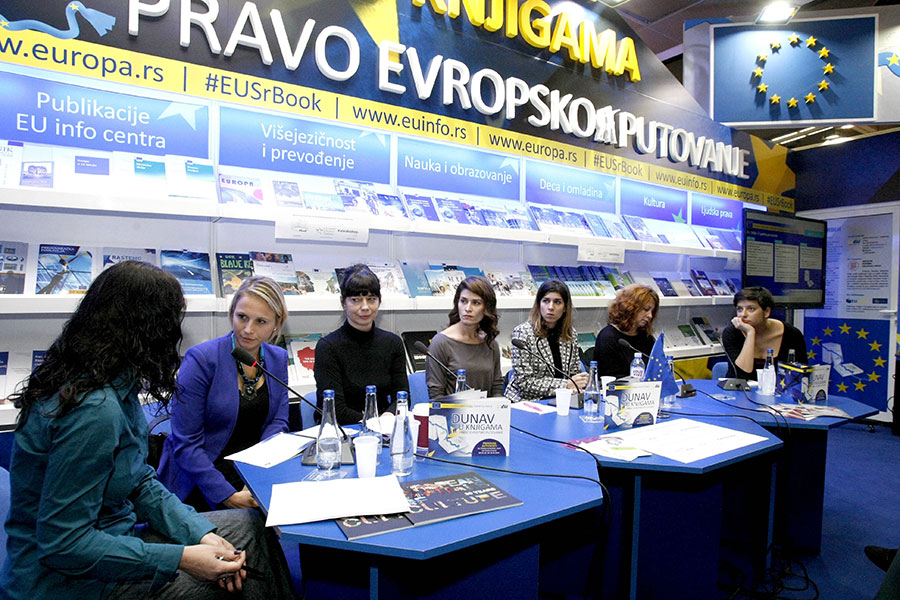Serbia is a part of European cultural space and has been participating successfully in EU cultural programmes, concluded participants of the panel “Could culture in Serbia do without Europe” held at the EU’s book stand within the International Belgrade Book Fair.
Negotiating chapter 26 deals with not only culture, but also youth, sports and education, said EU Delegation to Serbia representative Nadezda Dramicanin. She reminded that the area of culture there were no strictly defined EU directives to follow, only recommendations: “The EU strives to make indicative recommendations because there are no specific directives whose implementation could be monitored. We make indicative recommendations through Creative Europe Programme…” Dramicanin said the EU paid much attention to culture adding that it increased the budget aimed at this Programme which runs until 2020.
According to her, it is important that organisations write projects themselves. Apart from the support provided by Creative Europe, Dramicanin added, the culture was also being supported through IPA – the Instrument for Pre-Accession Assistance.
“We believe culture in Serbia could not do on its own, that the way of cooperation is better,” Dramicanin said, adding that cooperation with others is necessary when applying for EU funding.

Emil Vaš/EUIC
The representative of Creative Europe Desk Serbia Nina Mihaljinac said a total of 40 Serbian organisations were participating in the Programme in all its components. She cited a few examples such as the support to formation of modern dance scene, publishing, audience development programmes… “Some of the publishing houses manage to stay afloat precisely thanks to translations financially supported by Creative Europe,” Mihaljinac said.
As the participants of the panel noted, Serbia ranked first for number of translations supported through Creative Europe.
Mihaljinac said Serbia was a part of European cultural space, but noted that the state should define its priorities in this area within the negotiating process.
Head of MEDIA Desk Serbia, the audiovisual segment of the Creative Europe Programme, Nevena Negojevic said Serbia was rather successful since March 2016 when it first took part in the Programme. “We had a very successful first year: eight projects, most of them aimed at film production… Film festivals could have done better, though… Palic Festival was the only one to receive support. For instance, Beldocs has received support but in the form of assistance for the development of industrial marketing, Negojevic said, adding that it was the area in which most of the work should be done.
Team Europe Serbia expert Lola Joksimovic said Serbia should define the priorities of its cultural policy at the national level. “There is no official national strategy, one that organisations would find helpful when applying,” she added.

Emil Vaš/EUIC
According to her, to apply for funding in the area of culture is not easy because organisations find the process of applying exhausting on the one hand, and because there are fewer and fewer foundations interested in the region of former Yugoslavia, on the other.
“In order to apply for Creative Europe you have to participate with 40 percent of funding which poses a serious issue.” On the other hand, Joksimovic added, it is a positive thing that organisations from around the world are willing to team up with Serbian organisations. They accept cooperation with our organisations because we have knowledge and values,” Joksimovic said.
Director of Kolarac Foundation Jasna Dimitrijevic shared the experience of participating in TakeOver project which Kolarac implemented together with partners from Poland, Greece and Italy in an effort to develop audience, young audience in particular. As she put it, all of participating countries share this topic, which is why the project had been designed in the first place. In order to implement it as successfully as possible, Kolarac established the Youth Council which accurately conveyed the perception of young people on certain issues and provided their perspective. Dimitrijevic said that Kolarac, which was no longer eligible for budget funding, experienced nearly the same issues as any other public institution but, when it comes to project implementation, had an advantageous position due to its infrastructure.
Vice-President of Culture Forum of the European Movement in Serbia Milena Stefanovic said the Forum was recently re-established in order to engage in lobbying in the area of culture. She said she hoped that the national cultural strategy would be subject to public consultation in 2017 as previously announced.




